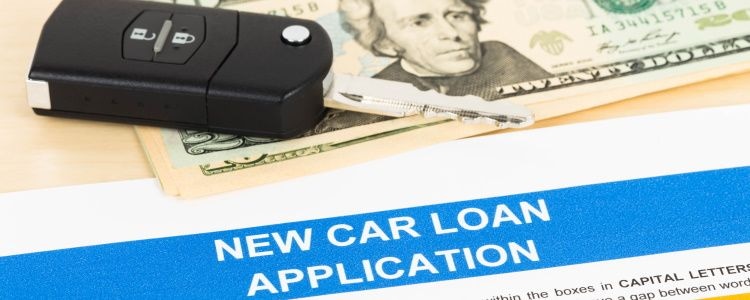You may have heard that you need to borrow money to build your credit history. You may have also heard that you need a good credit score and solid credit history to get approved for an auto loan. So, how can you get approved for a loan with no credit history? We’ll explain how car loans affect your credit score, and where borrowers with no credit or bad credit may be able to start improving their scores.
How Credit Scores Are Calculated
 Auto loans affect your credit in many different ways, and if handled correctly, can really improve your credit score and help build a good credit history. To understand how a car loan affects your credit, let’s go over what makes up your credit score.
Auto loans affect your credit in many different ways, and if handled correctly, can really improve your credit score and help build a good credit history. To understand how a car loan affects your credit, let’s go over what makes up your credit score.
Your FICO credit score is calculated using a scoring model generated from your credit reports, which have your personal information and your current and past history of handling credit. Your credit score is presented in a three-digit number between 300 and 850 – the higher the better. And if you have never borrowed money, your score isn’t zero, but likely around the lower middle, or subprime range.
There are few different scoring models, but auto lenders typically use the FICO score, so we’re going to break that one down. There are five different aspects of your FICO credit score, each carrying a different weight:
- Payment history: 35%
- Amounts owed: 30%
- Length of credit history: 15%
- Credit mix: 10%
- New credit: 10%
Your credit score is used as a snapshot of how good of a borrower you are – that is, how well and how long you have repaid and are repaying borrowed money.
How an Auto Loan Affects Your Credit Score
As you can see from the listed breakdown, payment history holds the most weight. Let’s go through each of the categories and how an auto loan can help your credit score:
1. Payment History: 35%
On-time payments build your score, while late/missed payments decrease your score. And good payment history sticks around on your credit reports for up to 10 years, while bad history or negative marks hang around for up to seven.
Car loans typically last for a few years and are installment loans, which is a loan that’s repaid in predetermined amounts over a set period of time. By the time you complete an auto loan, it can really build your credit score – if you’ve made nothing but on-time payments.
2. Amounts Owed: 30%
Amounts owed comes in second and it looks at several different aspects regarding what you owe on various types of credit accounts. A big part of this factor is the credit utilization ratio, which looks at how much you owe versus how much credit you have available on your credit card accounts.
When you take on a car loan, your credit score drops slightly because the amount you owe went up. With each timely payment, though, you’re building a solid credit history of payments and reducing the amount you owe, which improves your score.
3. Length of Credit History: 15%
Length of credit history takes time to build – the longer your history, the better your score. Again, auto loans last a few years, and this can be a great start for new borrowers with a thin credit file (little or no credit history).
Many borrowers also start their credit history with credit cards, which are revolving credit, which brings us to credit mix.
4. Credit Mix: 10%
Credit mix takes into account the different kinds of borrowing methods you’re using. Credit cards are an example of revolving credit, where you have a limit on how much you can borrow and a monthly minimum payment based on the account balance. A good mix of credit can improve your score, so it helps to have installment loans and revolving credit.
Starting multiple credit accounts all at once can lower your score, however, and that’s where new credit comes in.
5. New Credit: 10%
New credit is what it sounds like – a new line of credit or loan. When you start a loan, it drops your score temporarily. If you open multiple credit cards within a short period of time, it can lower your score further. But over time, if you keep up on the payments, your credit score improves.
Where to Find Auto Loans for No Credit Borrowers
If you’re looking to build a thin credit history with an auto loan, we want to help. Here at Auto Credit Express, we match no credit and bad credit borrowers to local dealerships that work with subprime lenders.
Subprime lenders are bad credit lenders, and they evaluate the ability to repay a loan by looking at more than just your credit score, or lack of credit history. Using your income and overall stability, subprime lenders can help many new borrowers get into their first car loan and improve their credit score.
We want to help you find a dealer near you. To get started, fill out our free auto loan request form. It only takes a few minutes, and there’s no obligation to buy anything.
















